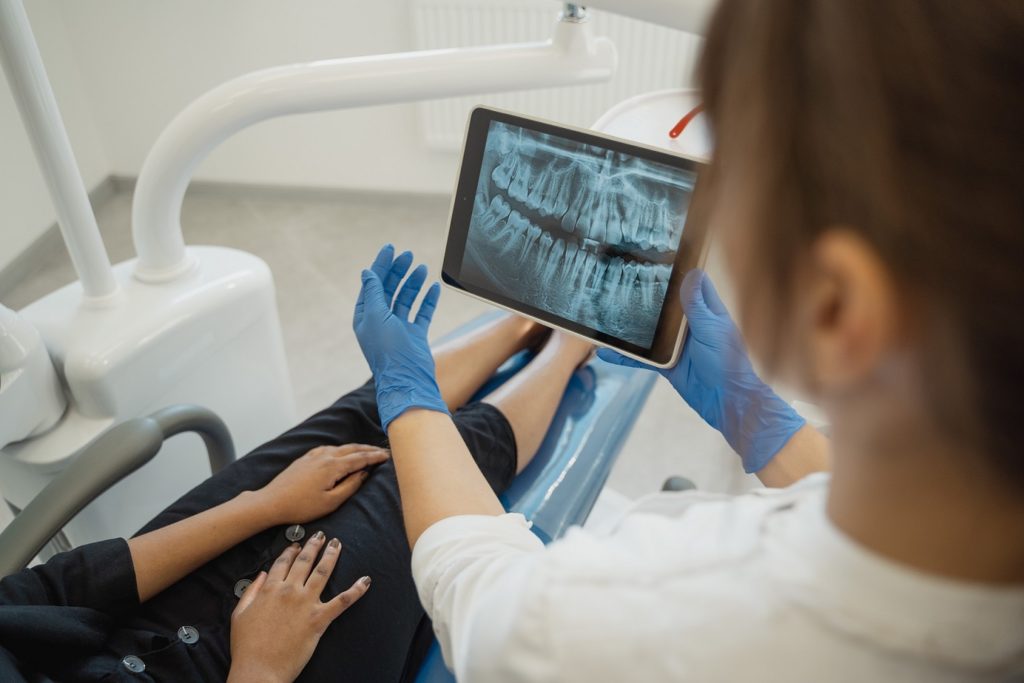Patients frequently come to me seeking a second opinion. Likewise, many of my patients seek second opinions from other dentists. As an oral healthcare provider, I encourage patients to seek second opinions, especially with large treatment plans. There are many benefits to second opinions, but there can be some pitfalls as well.
Two Dentists, Three Opinions
Dentistry, like most health professions, is as much art as science. Two dentists may treat the same problem in entirely different ways. This has a lot to do with the way each dentist was trained, their experience level, and what types of treatment they are comfortable providing. This doesn’t mean one dentist is right and the other is wrong. Rather, each dentist will have a different approach to diagnosis and treatment, meaning they see things and treat things from their own experience and training.
Consider basic carpentry for a moment. Is it better to fasten to pieces of wood together with screws or nails? The answer may depend on the circumstances and the carpenter. The same is true for dentistry. As they say, if all you have is a hammer, every problem looks like a nail. If you see a dentist who doesn’t place dental implants, they may be more likely to recommend tooth replacement options that don’t involve implants. If your dentist doesn’t do root canals, they may be more likely to pull a tooth and replace it with a bridge or an implant.
Second Opinions
Second opinions are often a good idea, and rarely a bad idea. However, there are times when a second opinion may delay treatment and lead to a worse outcome. In case of a dental emergency, seeking a second opinion is probably not advisable.
Second opinions can also sometimes confuse patients. Two dentists may take a different approach to treatment, and patients may be left wondering which one is right. Or, two dentists may disagree on a diagnosis entirely, leaving the patient unsure of how to proceed. In some cases, patients may think one dentist is trying to deceive them to enrich themselves. Unfortunately, there are no easy answers here, but I advise patients to choose the dentist they feel most comfortable with and who explains their treatment plan fully.
All of that said however, second opinions are still a good thing in most cases. Seeking a second opinion may lead to a more thorough evaluation from the second dentist, who has a chance to evaluate the findings of the first dentist when formulating their own diagnosis and treatment plan. One study of second opinions in medicine found that patient-initiated second opinions led to a change of diagnosis 15% of the time and treatment in about 37% of examined cases.
Third Opinions
What should you do if one dentist’s treatment plan looks entirely different from the other? There are different ways to approach the same problem. For example, if both dentists agree that a tooth needs to be extracted, but they have different plans to replace it, then that is a typical and acceptable difference of philosophy.
If, on the other hand, one dentist says you have thirteen cavities, and the other says you have none at all, then you should probably seek a third opinion. You have no way of knowing which dentist is giving you better advice. It could be that the first dentist is more aggressive than the other. Perhaps the first dentist is diagnosing things that aren’t there. Or, perhaps the second dentist isn’t diagnosing things that are there.
No matter how many opinions you seek, it is always wise to do your own research, especially when there are large discrepancies between two treatment plans. These days, there is a plethora of freely available information online, and although some of it may be spurious, there are many reputable organizations that offer free oral health education online including the ADA, CDC, WHO, and Mayo.
Cost Differences
What if the treatment plans are similar, but the costs are different? With most things we buy, you get what you pay for. In dentistry though, price differences between two different dentists can be arbitrary and dependent upon geographic factors, market forces, and contracted insurance rates. One dentist’s implant may cost $5,000 while another dentist charges $2,500. Is the first dentist’s implant twice as good? Probably not. In fact, it could be that the second dentist’s implant looks better and lasts longer while costing less.
If you lack dental insurance, and one treatment plan costs significantly more than the other, mention the price difference and see if the second dentist is willing to match the price at the other office. If you do have dental insurance coverage, keep in mind that we are bound by contract to honor the rate your insurer pays. So if you are using your dental insurance, we may not have much flexibility with price. Also, us dentists don’t know what the dentist down the street charges for the same procedure because it is illegal for us to share prices with each other to prevent price fixing and collusion.
Advocate for Yourself
It is important that you advocate for your own health and welfare. A good dentist will welcome a second opinion. With complex treatment plans, I strongly recommend a second opinion. Many of the procedures we do in dentistry are irreversible. If you have any doubts or concerns about a treatment plan, then you should absolutely seek a second opinion.
It’s worth mentioning that in addition to advocating for your own health, you are actively improving the field of dentistry. Second opinions help keep us dentists honest and accountable to each other. By knowing that our treatment plans and diagnoses are potentially subject to review from our peers, we have further incentive to be honest. Thank you.

